So you are adding a dog to your family? Congratulations! Dog's can teach children wonderful attributes such as companionship, loyalty, responsibility and the value of friendship. But it is very important to teach your child how to behave around your new furry friend and it is probably a good idea to have a sit down talk with your child BEFORE you bring home your new pet. Teaching your child how to be dog friendly will help to create a loving and meaningful relationship right from the start.
If you are thinking about getting a dog and having your 7 year old child be the primary care-giver, think again. Most children get very excited about the idea of owning their very own four-legged friend. However, most of the time, the excitement wears off and the parents are the ones who actually care for the animal. While dog care is a wonderful way to teach a child responsibility, a new dog should be a family decision and a family effort.
If you have a baby or toddler you should teach him or her that it is not ok to hit, pinch, or grab the dog. Most dogs are very friendly; however, they are animals and can only take so much abuse at the hands of a toddler. You should also teach your toddler not to play with your dog's eyes or ears. ALWAYS supervise your dog and toddler when they are in a room together and NEVER leave your toddler alone with your dog! Even if your new dog is the gentlest animal in the world, it is better to be safe rather than sorry.
When dogs eat, they do not like to be bothered. Some dogs are food aggressive and will become very angry if agitated while eating. Teach your child to leave your dog alone during mealtime. You probably don't like to be poked and prodded while eating your dinner, so you should allow your dog the chance to eat in peace as well.
If you have a safe place for your dog to retreat to (such as a crate or special dog bed) teach your child not to bother the dog while in his space. Dogs need peace and privacy too! It is also a good idea to teach your child not to play in the dog's food dish or water bowl. Dog kibble can be a choking hazard for young children and playing in the water bowl can only lead to a big mess! Plus, your dog needs fresh, clean water at all times, if your child is playing in his water bowl, he most likely doesn't have easy access to it.
Finally, and I know this isn't the most savory of topics, but it is very important that your child does not play with or handle dog feces. If you get a new puppy, he will probably have an accident or two before he is finally potty-trained. Feces can contain roundworm eggs and if ingested by a human, can cause serious health risks.
Hopefully these simple considerations will help you and your child adjust to your new furry friend. Dogs are wonderful animals and can teach many life lessons, especially to children. Teaching your child to respect the family dog that they may live in peace with one another is a life lesson in itself!

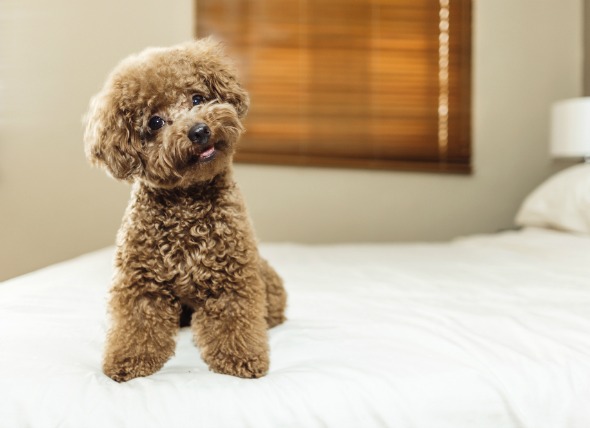 The Hype of Hypoallergenic Pets
By Yahaira Cespedes
Allergy sufferers dread spring
The Hype of Hypoallergenic Pets
By Yahaira Cespedes
Allergy sufferers dread spring
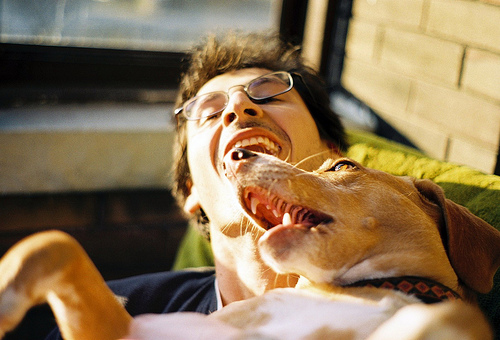 Oral Hygiene and Your Dog's Health
By T. J. Dunn, Jr., DVM
It’s
Oral Hygiene and Your Dog's Health
By T. J. Dunn, Jr., DVM
It’s
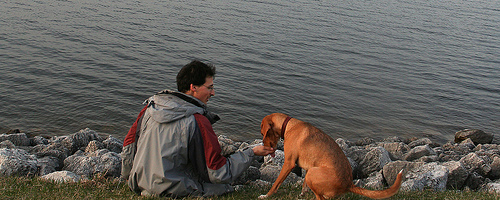 If Pets Could Talk: A Heartwarming Letter from Dog to Friend
By T. J. Dunn, Jr., DVM
Do pets grieve the
If Pets Could Talk: A Heartwarming Letter from Dog to Friend
By T. J. Dunn, Jr., DVM
Do pets grieve the
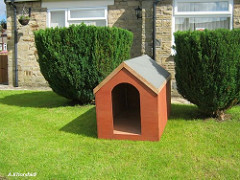 Disadvantages And Advantages Of Dog Boarding Solutions Online
When you possess a pet dog, each day could feel like a vaca
Disadvantages And Advantages Of Dog Boarding Solutions Online
When you possess a pet dog, each day could feel like a vaca
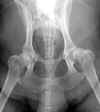 Arthritis: How to Recognize and Manage the Condition
By T. J. Dunn, Jr., DVM
Almost every
Arthritis: How to Recognize and Manage the Condition
By T. J. Dunn, Jr., DVM
Almost every